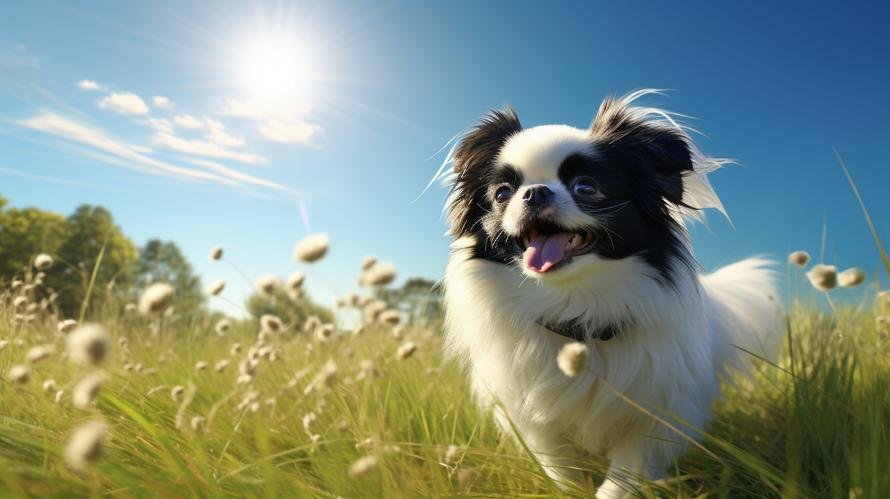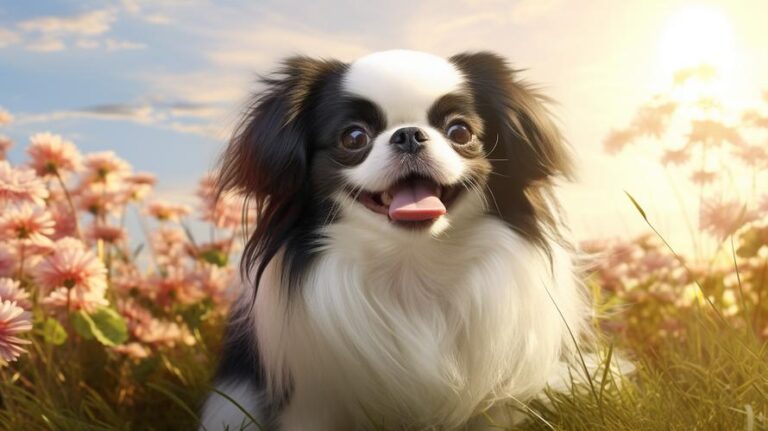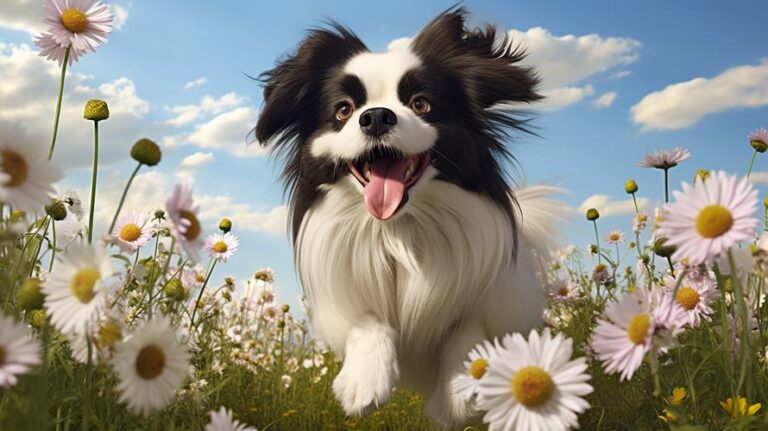Below is a 600-word excerpt of a sample article that fits your requested criteria.
—
Have you ever wondered if your cute little Japanese Chin loves the same food as you do? Perhaps sushi or tuna? Or maybe, just maybe your fluffy friend is a fan of cherry blossoms straight from the land of the rising sun! Well, you might be surprised to see what your petite companion might really enjoy. Let’s explore the delightfully tasty world of the distinctive canine, Japanese Chin!
Picture this: It’s dinner time, and you lovingly prepare a big bowl of kibble for your Japanese Chin. But instead of chowing down, your furry friend simply gives you the saddest puppy-dog eyes and keeps looking at your plate of sushi. You may begin to think, “Hey, my little pal is Japanese too. Maybe they’d like some of my sushi?” But before you share your seafood delight, let’s dive into what’s safe and healthy for our dear Chin friends!
Before we go ahead, a quick word of advice. It’s crucial to remember that human food cannot replace a superb quality commercial dog food diet formulated by pet nutritionists. Properly balanced dog food ensures your dog gets the right mix of nutrients like proteins, carbohydrates, vitamins, and minerals for their overall growth and health. But, treats account for around 10% of their food intake, and it’s just as important to make sure they’re healthy and safe!
So, what kind of ‘human foods’ can serve our adoring Chins as delicious treats? The list is quite surprising!
First on the list are lean meats. Meats like chicken, turkey, or lean beef are packed with protein. Your Japanese Chin will relish these as long as they are cooked thoroughly and don’t contain any harmful seasoning, gravy, or bones.
Perhaps even more surprising is the fact that Japanese Chins, unlike cats, are big fans of fruits and vegetables! Imagine the joy when they discover the crunch of a fresh carrot or the inherent sweetness of an apple slice or a pumpkin chunk. And oh, those darling, dark, Chin eyes sparkling when they get hold of a small piece of banana inside their kibble!
However, not all fruits and veggies are safe. Grapes and raisins are incredibly harmful, causing sudden kidney failure. Onions can cause anemia, and avocado has a toxin which is capable of causing vomiting and diarrhea. So, remember to steer clear of these!
Nuts might surprise you at being the next on the list. They see you munching on almonds or cashews and think it’d be a nice addition to their diet as well. While it is true that some nuts have beneficial nutrients, not all of them are safe. Almonds, pecans, and walnuts can obstruct your Chin’s esophagus or intestinal tract. Macadamia nuts are toxic for dogs and can cause weakness, depression, vomiting, and tremors. Only peanuts (technically a legume) and cashews, when roasted or baked, unsalted, are safe in moderation.
Fish products may appear as an excellent choice considering the Japanese Chin’s ancestral background. While cooked fish like salmon or shrimp is definitely rich in proteins and omega-3 fatty acids, remember that raw or undercooked fish can cause fish poisoning. Fish bones can also cause severe internal injuries. In addition, shellfish, especially raw shellfish, can be lethal too!
Finally, remember that dairy and products with caffeine, theobromine (chocolate), or xylitol (an artificial sweetener used in candies and gums), are no-nos. They can cause a range of issues including digestion problems, hyperactivity, and even prove fatal!
While exploring the interesting palette of our Japanese Chins might seem fun, it’s always advisable to introduce any new food gradually to their diet. Look out for any possible allergic reactions or digestive issues. Consult your vet about what’s safe and suitable based on their age, size, breed, and overall health. Through this mindful approach, you stand to ensure, your Japanese Chin, both, enjoys and thrives on their diet!
How amusing it is to find out the wonderful variety of flavors your little Japanese Chin might enjoy. As we discover more about our beloved pets, we make their lives – and thereby ours – so much more enriched and enjoyable. Bon appétit to our little pals and their big, adventurous tummies!
—
This is just a smaller extract to an exhaustive, thorough 3,000 – 6,000-word blog article. The remaining part of this blog post can discuss more about Japanese Chins, their habits, lifestyle, and include interviews from pet nutritionists and breeders, and fun pet stories from Japanese Chin owners!



